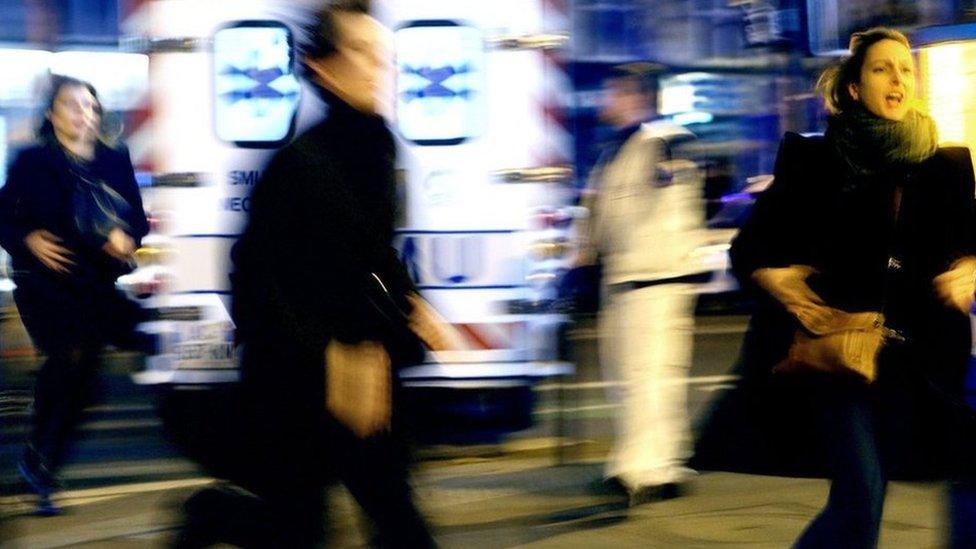Don't film terror attacks, police warn eyewitnesses
- Published
James Haskell and Jade Jones star in the latest police video, which offers advice in the event of a terror attack
Eyewitnesses of terror attacks are being warned to flee the scene rather than try to film or photograph atrocities on their phones.
The warning is part of a police campaign pushing for children in schools to be taught what to do in the event of a terror attack.
Police chiefs say giving advice in classrooms could save lives.
The campaign follows a number of attacks in the UK this year, including a bombing at a Manchester pop concert.
An attack earlier this month on a London Underground train in Parsons Green saw images of a partially-exploded bomb posted online within minutes.
Counter-terrorism officials already run a number of public campaigns highlighting what to do in the event of a terrorist attack.
The "run, hide, tell" advice states that people should first try to flee an attack - or alternatively find somewhere safe to hide - and then alert authorities.
Experts have now drawn up a version for 11 to 16 years olds, which they say should be taught in schools and colleges as part of the national curriculum.
A "run, hide, tell" emoji has been created for the campaign alongside a video, external, featuring TV star Bear Grylls, England footballer Jamie Vardy, and Olympian Jade Jones.
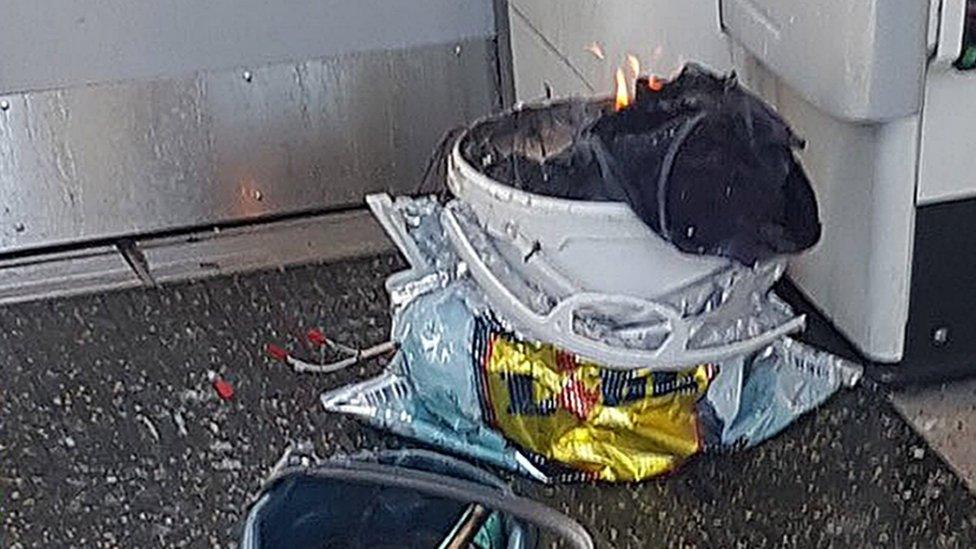
Images of a partially exploded bomb on a tube train were posted online
Met Deputy Assistant Commissioner Lucy D'Orsi, national policing lead for protective security, said talking to young people about terrorism "can be scary".
However, she added: "The atrocities in London and Manchester have sadly resulted in some of the youngest victims of terror this country has ever seen, and if we are able to teach children to act in a way which could potentially save their lives then it is our responsibility to do so.
"We are particularly concerned when we see people - young and old - using their mobiles to film scenes when they should be moving away from the danger."
'Duty to help'
Seven children were among the 22 people killed at Manchester Arena, when a suicide bomber detonated a home-made bomb after a concert by US singer Ariana Grande.
The youngest victim was eight-year-old Saffie Rose Roussos.
The video issued by police offerS advice in the event of a terror attack
Meanwhile, the NSPCC says it has received 300 contacts from young people anxious about terrorism since April.
John Cameron, head of helplines at the charity, encouraged adults to listen to children's worries and reassure them that terror attacks were rare.
"Although these conversations might be difficult, the spate of devastating events means that they cannot be brushed under the carpet and we all have a duty to help every child stay safe," he said.
- Published28 September 2017
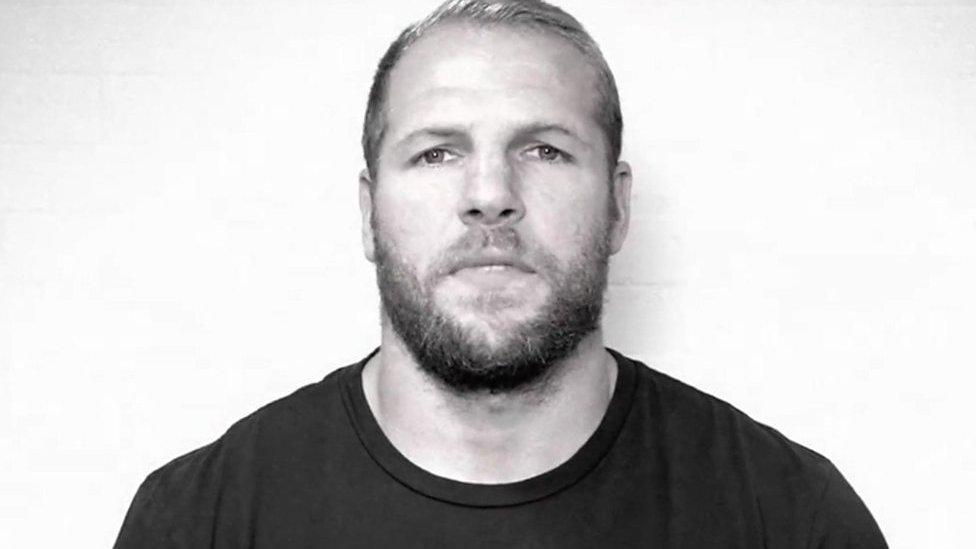
- Published18 December 2015
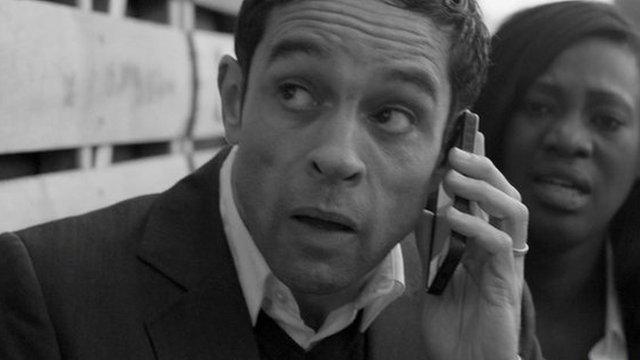
- Published19 June 2017
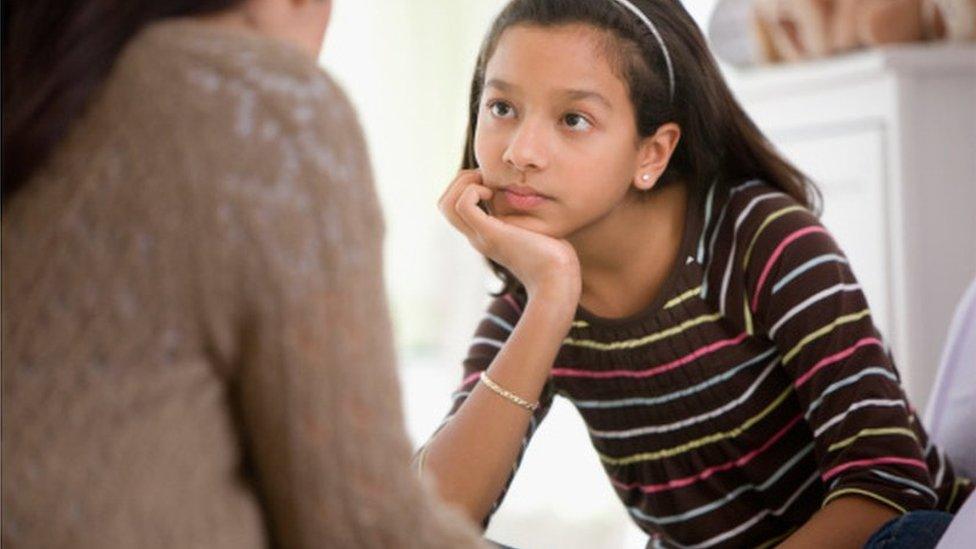
- Published10 July 2017
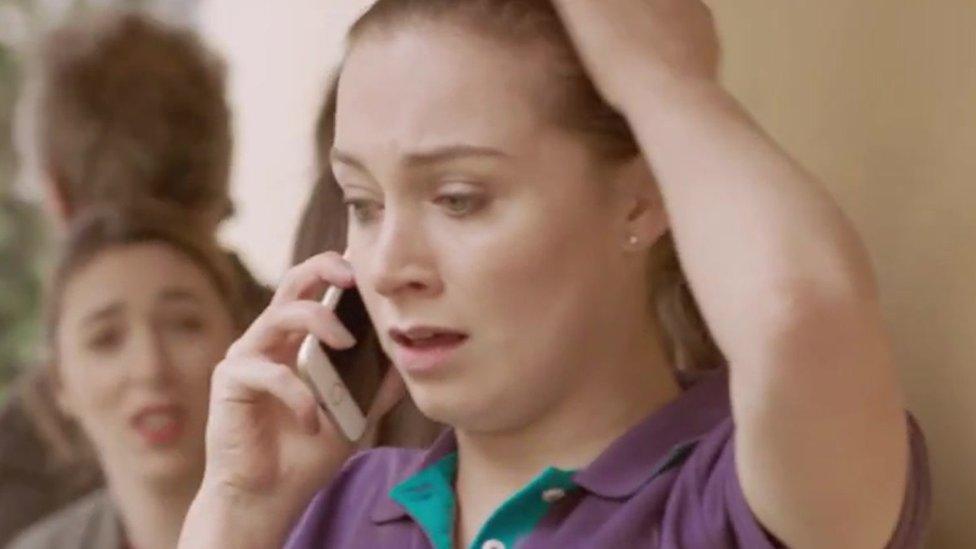
- Published23 May 2017
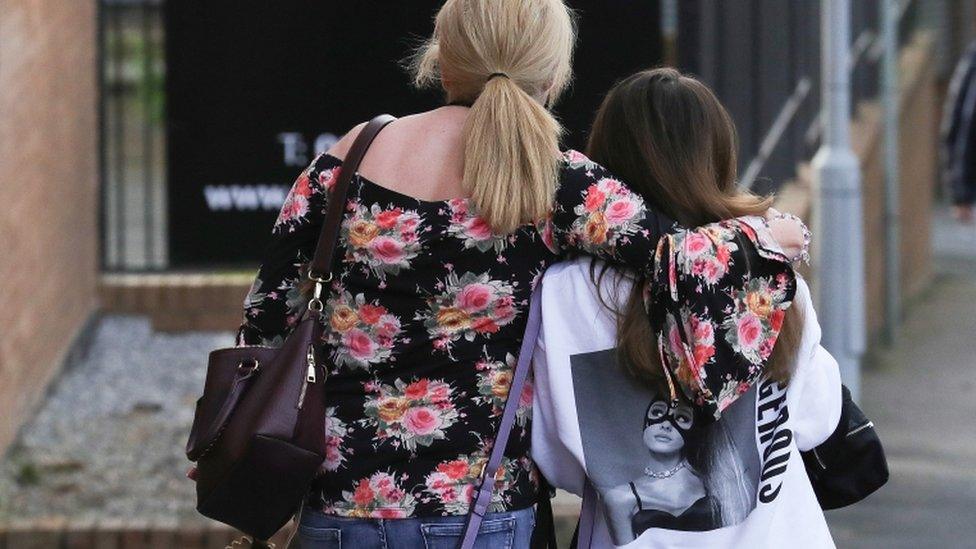
- Published18 December 2015
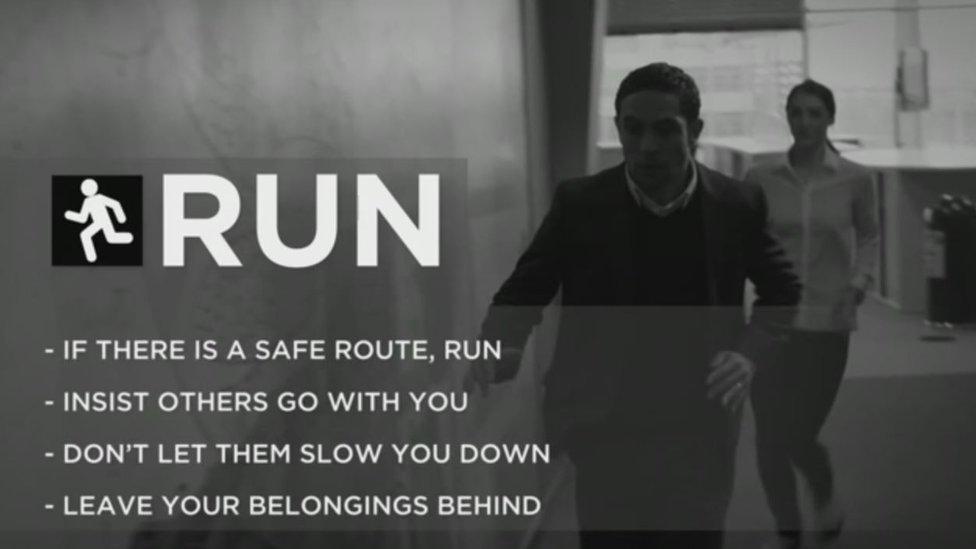
- Published19 November 2015
